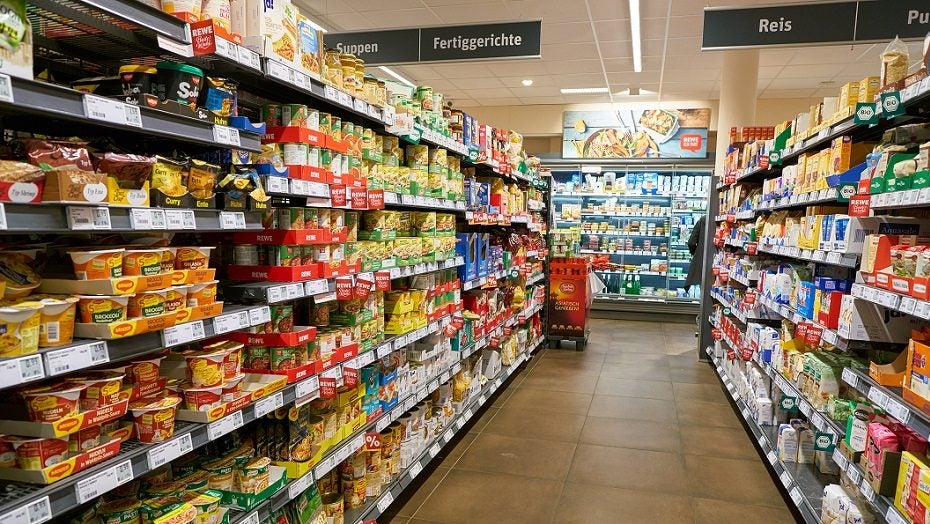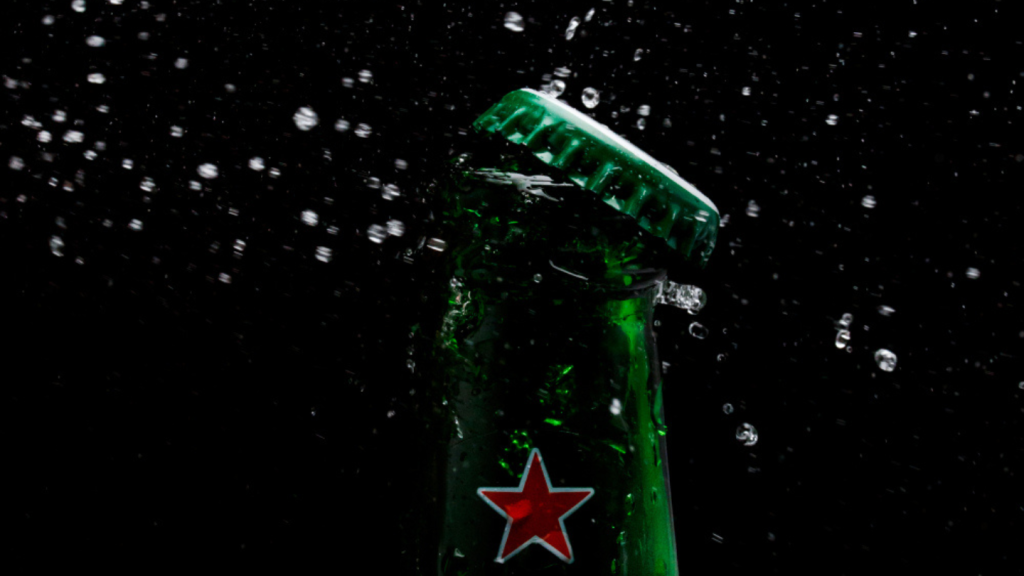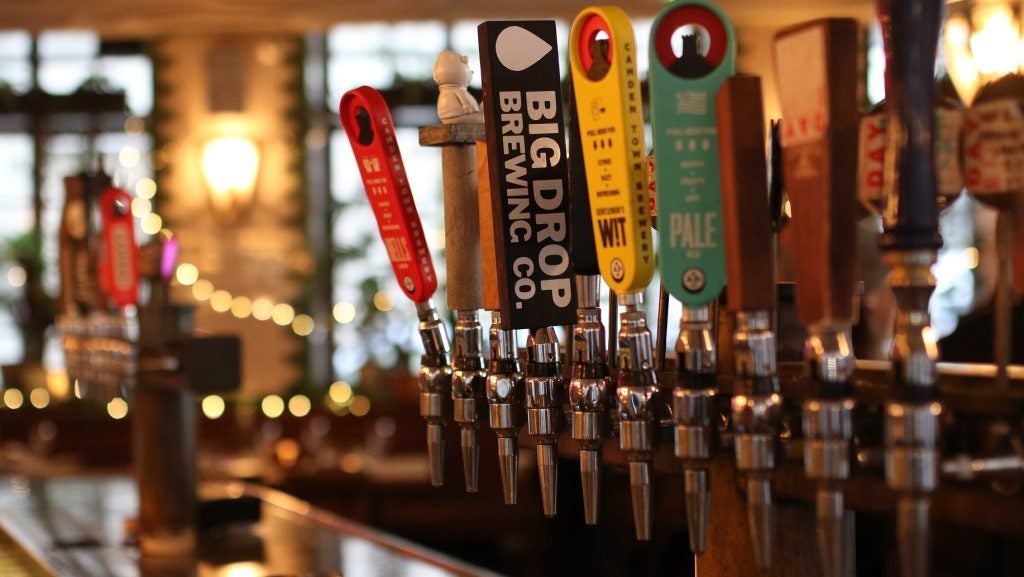
The summer water boom started early this year and the natural mineral water sector has continued its push to gain an advantage over its rivals in the UK. Jo Jacobius reports on efforts to raise the awareness of this corner of the water market and the challenges awaiting producers in the coming months.
The first week of May is traditionally seen as the start of summer drinking and with it the beginning of the associated increase in bottled water sales. However, 2003 has proved an exception. The combination of unseasonably warm and sunny weather in March and the start of the war with Iraq, which bought Home Office advice to stock up on packaged water, led to a 50% increase in sales in the third week of March compared with the previous week.
According to David Graham, marketing director of Danone: “Sales shot up by over 23% for the period January to March 2003 compared with the same quarter the previous year”. Record high temperatures during part of April will also have contributed to boosted sales.
Interestingly, despite industry predictions that the reported panic-buying of bottled water in March and April would increase share for own label products, the market shares in fact remained stable with all brands increasing sales in roughly equal measure.
How well do you really know your competitors?
Access the most comprehensive Company Profiles on the market, powered by GlobalData. Save hours of research. Gain competitive edge.

Thank you!
Your download email will arrive shortly
Not ready to buy yet? Download a free sample
We are confident about the unique quality of our Company Profiles. However, we want you to make the most beneficial decision for your business, so we offer a free sample that you can download by submitting the below form
By GlobalDataGraham said: “Orders were buoyant and our expectation is that there won’t be a stock-piling effect leading to reduced sales later in the season.
“The prime reason why people who prefer bottled water revert to tap from time to time is quite simply that they run out of bottled water in the home “ |
The UK’s natural mineral water market now boasts sales of 1.38 billion litres (excluding water coolers) per annum, worth just under £1billion, according to Zenith International. But according to new research consumers are continuing to make the switch to water. A survey by NOP undertaken for the Natural Mineral Water Information Service and released this month shows that on average, 59% of women now drink more than they did in 1998. Of these, 71% drink twice as much as they did five years ago and 29% drink three times as much water or more.
For the natural mineral water sector, the growth in healthy living is a further boost. A recent survey found that 84% of the population want foods and drinks to be as natural as possible. However,
“The challenge for the natural mineral water sector is to educate consumers” |
Despite European and UK legislation, labelling still causes confusion, particularly over the difference between spring water and natural mineral water.
Ian Hall, chairman of the Natural Mineral Water Information Service (NMWIS) and general manager of Spadel UK, said: “Natural mineral waters are additive free (except for the addition of carbon dioxide to make them sparkle), naturally wholesome and entirely without treatment that alters their natural characteristics. They must, by law, come from a known and protected source, be bottled at that source and have a consistent mineral content with the analysis always printed on the label. Our challenge as a sector is to promote this ‘super-organic’ message”
One of the major activities for the NMWIS campaign for 2003 is a series of editorial promotions in key women’s titles, notably Marie Claire magazine, promoting the benefits for health and beauty of natural water.
Hall said: “Our campaign has now been running continuously for six years and, it has played a major role in changing awareness of the health benefits of water and of the differences between bottled waters in a way which has been positive for the bottled water industry as a whole. Other bottled water groups on the Continent are interested in copying our UK campaign. If natural mineral water consumption is taken for granted there is a danger that ‘engineered waters’ will gain acceptance. Consumers need to be educated to understand the differences between natural and processed products. They are faced with a wide range of different bottled water options and we want them to make a considered choice. We aim to promote the general benefits of water consumption and concentrate on the unique benefits of natural mineral water, without ‘knocking’ other water styles. We would welcome any natural mineral water providers not in the NMWIS to join us and participate in this successful campaign.”
The environment, lifestyles and distribution channels are all issues that are influencing water industry leaders’ strategic decisions. The recent trends towards a healthier lifestyle is expected to continue, according to Aoife Burnell, marketing controller of Nestlé Waters UK, who said: “Continued growth in healthy lifestyles coupled with increasing concern on issues surrounding obesity especially in children will continue to drive the market.
“We remain committed to providing a strong portfolio of high quality water brands with a strong emphasis on brand communication, innovation and packaging.”
Looking to the future, environmental concern is one issue that some industry experts predict will become of increasing importance. Speaking in his capacity as general manager of Spadel UK, Hall explained that his company is already thinking ahead. ”
“Increasingly, bottled water is being identified as accused of being harmful to the environment” |
may be unaware that Spa Reine has been using legally approved bottles containing 20% recycled PET material since 2001 and that this concept is being extended to other Spadel products. We are working hard to maintain our leading role in this area.”
Legislation
Later in the year, the industry has further legislative changes to accommodate. The key change is that antimony, arsenic, bromate and nickel levels will be reduced in line with the latest scientific advice. In addition, there will be more stringent rules for local authorities to inform central Government of new recognitions of natural mineral waters – as well as of other changes. The European Union will allow the use of ozone in natural mineral waters and spring waters under certain stringent conditions. The new ruling falls within the Natural Mineral Water, Spring Water and Bottled Drinking Water (Amendment) (England) Regulations 2003 and there will be similar legislative changes for other parts of the UK.
Children and water
One of the key legislative changes is that, from December 2003, bottled waters may be described as ‘suitable for infant feeding’ provided that strict criteria are met. The industry broadly welcomes this move to support water for babies and very young children. In addition, the importance of water in the diet of older children has also been addressed by some of the leading bottled water companies.
As Highland Spring’s marketing director Sally Stanley said: “The growing trend towards healthier eating and drinking in schools, currently being strongly influenced by government policy, will lead to an increase in the consumption of bottled water by children in their school environment. In addition to reaping the benefits of good hydration, this will encourage children to form good drinking habits at an age when habits for life are being formed.”






